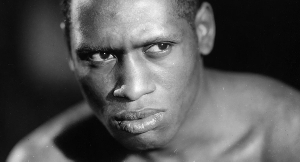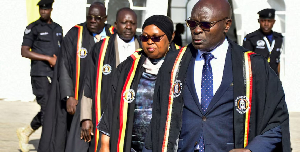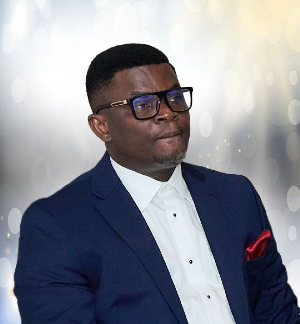Almost 13 years after leaving office after 19 years in power, President Rawlings has not written a single book on his momentous political life!
Five years post presidency, President Kufuor has failed to write a single word on what influenced the major decisions of his tenure!
President John Mills— four years as Vice President, four as President. Dead! No autobiography! Vice President Aliu Mahama— eight years in office. Dead! Without a book. Justice Daniel Francis Annan—for eight years, Speaker of Parliament and an experienced political hand. Dead! No autobiography! Peter Ala Adjatey—four years, Speaker of Parliament and past leader of a major political party. Dead! Without a book. Major Courage Quashigah, probably the only first class US Army- trained ranger, national party organiser, and Minister of State for eight years. Dead! No book!
How many more of our leaders are waiting to die without sharing their experiences with a younger generation? How many are woefully failing in their social obligation to prevent avoidable governance pitfalls with carefully documented historical accounts to be learned from!
William Jefferson Clinton left office in the same year as Jerry Rawlings. Within four years, “My Life” was published. When Clinton decided to dedicate his post presidency to so-called citizen activism, he went beyond the traditional presidential library and formed the Clinton Global Initiative.
Within three years of “My Life”, he published his second book, “Giving: How Each of Us Can Change the World.” Vice President Al Gore; within six years of losing the presidency, released “An Inconvenient Truth” in which he argued that, “The truth about the climate crisis is an inconvenient one …” George Walker Bush Jnr, his foibles in Iraq and Afghanistan notwithstanding, wrote “Decision Points” within two years of leaving office, reflecting on the major decision points that defined his presidency. Tony Blair, his British conspirator, also reflected on “A Journey”. Vice President Cheney, Donald Rumsfeld, Barack Obama, and even Monica Lewinsky have all shared something with us!
What makes their leaders routinely document their learning and move on to new conquests while some of ours sometimes appear only too happy to remain slaves of past glories and too scared to embrace a new future?
The conduct of President Rawlings’ post presidency is especially less than impressive, especially where documenting his reflections on momentous national events of historical significance are concerned. Kufuor’s shortcomings in not writing a book notwithstanding, he seems to have a clear plan with his foundation. But still, both they and others painfully refuse to write. Is it selfishness? Is it lack of awareness of its importance? Is it lack of adequate technical support? Is it for fear that we will not read? Whatever the reason, a lot of our leaders have woefully failed to prioritize this.
Some leaders, desirous of documenting their legacies, have, perhaps, either found inspiration in or been intimidated by Singaporean leader Lee Kuan Yew, reputed for moving underdeveloped Singapore, bereft of so called natural resources, “From Third World to First” over a 35 year period. What they lacked in natural resources, they more than made up for in what Henry Kissinger called “superior intelligence, discipline, and ingenuity.”
Today, Lee Kuan Yew’s book appears to have become standard reference text for students of transformational leadership. Would this have been possible had he not taken the painstaking trouble to document his views, experiences and his learning? Mandela took us on a “Long Walk to Freedom” while Nkrumah gifted us an entire golden collection.
Various strategies have been deployed by some of these leaders in their unquenchable quest to write for younger generations amidst busy schedules. Fundamental to these strategies has been the deployment of research assistants and writers to assist these former presidents dig through voluminous government materials and minutes of crucial meetings, etc.
The research for Yew’s book took almost five years. If the country truly values the documentation of historical events through the eyes of principal actors in those events, then there would be the need to facilitate the writing of same. This may take the form of a supporting secretariat of writers and researchers.
Clinton wrote long hand in 22 big note books, leaving gaps where further research/fact check was needed. Assistants then filled it up, printing outputs for his edits. Hettie Jones co-wrote “My Life with Bob Marley” with Rita Marley in the latter’s words.
This is much the same way that Alex Haley, through extensive interviews with Malcolm X, enabled Malcolm X to write his autobiography as “told to Alex Haley.” So, our leaders can sit with writers and talk through the various chapters while it is recorded on tape for later transcription and editing.
Kwame Nkrumah had an energized private secretary who, for want of a better word, was especially relentless. Erica Powell continuously hounded the Osagyefo while in office to complete his books. Perhaps, this is one of the reasons for Nkrumah’s prolific writing; Powell will herself take notes and advance the book project.
After the Osagyefo, the only other high profile Ghanaian political leader to have bothered to write anything has been the then Vice President John Dramani Mahama with his “First Coup d’Etat.”
In it, he writes eloquently about Africa’s “lost decade,” describing how “For many individuals, there is a moment that stands out as pivotal to the awakening of their consciousness. Often, that moment can feel like a harbinger of disaster: the first tremors of an earthquake or rains of a hurricane, the eruption of civil war or riots. An assassination or a coup d’etat. It is a moment that serves as the line of demarcation, separating the certainty of what was from the uncertainty of what lies ahead. It is a moment in which you suddenly become aware of who you are; you become aware of the fragility and unpredictability of the world in which you live. Ghana’s descent into the “lost decades” began with such a moment, with the coup d’etat that unseated our first president, Dr Kwame Nkrumah. When I look back on my life, it’s clear to me that this moment marked the awakening of my consciousness.”
An aha! moment if ever there was one!
Fortunately, it is not only President John Mahama who gives us hope about a newer crop of leaders who do not fear to document their stories. An even younger generation inspires greater hope: Robert Nii Arday Clegg’s, (first class political science and philosophy student and the 2004 best graduating law student) “10 Strategies for Making Top Grades At The University”; Dr. Yaw Perbi’s numerous books on Christian leadership, finance and investment; journalist Ato Kwamina Dadzie’s “Pretending To Be President” and whatever book the grapevine maintains the intelligent broadcaster Bernard Avle is writing.
While commending the above, it bears investigating what it would take for the mythical Captain Kojo Tsikata (distinguished intelligence capo who did much, saw everything and said little) to write everything –well, almost everything, from the Ghana Army through Angola to heady revolution days. We need Dr. Obed Asamoah (Ghana’s longest serving Minister for Foreign Affairs) to write a scorching critique of Ghana’s foreign policies from Nkrumah to date, evolving key lessons on what could have been done differently. We need J.H. Mensah, reputed to be one of the very few to have experienced it all from Nkrumah through Kufuor to share. Prof. Kwesi Botchwey’s personal account of the tough decision-making that turned the Ghanaian economy from abject stagnation and decline of the late 1970s to growth in the 1980s is painfully missing.
Dr. Christina Amuako-Nuamah (dedicated mother and grandmother, staunch Christian, accomplished academic, political strategist and politician) cannot refuse to inspire young women and men alike with her compelling story. A book by the Ahwoi brothers, spelt Ato and Kwamena, on grassroots political mobilisation and critical decision-making in the corridors of power will be worth killing for. Dan Botwe’s distinctive focus and quality as a young party General Secretary, unmatched since, proved crucial in Kufuor’s successful 2000 presidential run. He too must share.
Kwesi Pratt Jnr., Kweku Baako Jnr., Kweku Sakyi-Addo, Azumah Nelson, Abedi Pele, and Kojo Antwi must all rise from the current slumber and write! It is a great failing and they all owe us many books which we must see by 2015!
I am reading Professor Kofi Awoonor’s affirmatively disruptive “African Dilemma.” Erudite, thought provoking and poetic, it reads like music on paper. His previous major work covering poetry, fiction and nonfiction notwithstanding, the acclaimed writer and statesman too, could gift us with another book covering these latter years. I almost allowed him to escape!
Sodzi Sodzi-Tettey
Sodzi_tettey@hotmail,com
www.sodzisodzi.com
2nd March, 2013
Opinions of Wednesday, 6 March 2013
Columnist: Sodzi-Tettey, Sodzi














